 |
|
LifeWays North America Newsletter, Autumn 2016
|
AMAZON SMILE: Support LifeWays with your purchases on Amazon! Designate LifeWays North America on AmazonSmile and they will donate .5% of all eligible purchases - we appreciate your donations!
Learn more
|

Dear Friends,
I am grateful for this newsletter that reminds us of what matters most - each other. And I'm especially glad that it comes at this time of year, autumn, when we find ourselves re-upping, taking stock of what brings meaning and purpose to our lives. We are in the season of Michaelmas, a festival of courage, celebrating our commitment to tame our personal dragons. It is so easy to look outside of ourselves and perceive wrongdoing, injustice, ignorance and blatant inhumanity. Recognizing those things for what they are is important and provides us a constant schooling of what we never want to become ourselves. It is also worthwhile to search our innermost being so that we can identify where any of those dragons might have landed, even temporarily, within us.
What do we actually DO about it, though? Group focus or prayer, as mentioned toward the end of the newsletter, can be powerful. My husband, Michael, and I have certainly experienced it during this chapter of his ongoing recovery, thanks to many of you! Trusting in a much larger picture of the unfolding of world destiny can also be helpful and sometimes comforting. Standing up for what serves the greater good and the well-being of others is also important, perhaps by becoming involved in local governance or by offering inspiring care (such as many of you are doing) for families and children. Trying to understand what may have caused those who are hateful, cruel or ignorant (including ourselves) to act the way they/we do can be mind-opening.
Essentially, what it comes down to is how we meet one another in our everyday life encounters and how willing we are to change ourselves from the inside out. While most of the articles are about wonderful ways to build community through parent gatherings, multi-age life sharing, and working together to maintain a well-loved care environment, our lead article has a different tenor and tone. It is a call to all of us not to always look outside to the larger culture to identify "the problem."
For most of my career, I have professed that very young children are not aware of skin tone differences. I based this on my experience of seeing how happy little ones (particularly infants) are to see a fellow traveler in their midst. They have a tendency to stare at each other, try to get the other one's attention, light up with some sort of mysterious recognition--Hey, didn't I see you lined up on the rainbow bridge not so long ago! As they move into toddlerhood, the all-things- are-mine phase, it is not always hearts and flowers. Not wanting to share is common, and they can come up with some pretty lame excuses as to why they won't. Then, of course, comes the "you can't come to my birthday party" stage. In other words, we start to hear and see a lot of territorial defensiveness.
The words used toward Jenn's son, however, ask for a "heads-up" moment. In fact, it was the discussion that took place at the Midwest LifeWays Training with Jenn and her classmates and teachers that caused me to request that our newsletter topic be about community. Some words, even if we know that they mostly come from a place of innocence in young children, are not okay. "You can't come to my birthday party" is standard fare in child development. And when we leave it alone, typically the two offenders are playing together again in a short period of time.
However, when such denials or affronts are accompanied by words that are cultural firebombs, we are called upon to step in--not with drama, but with warm clarity. "You two are friends. Now go play." The caregiver could say this because it was true. These two children were friends, as are most young children. But somehow, that day instead of saying, "You can't play because you have on a green shirt" (or some other silly excuse), the exclusionary words had to do with something the child cannot change. Whether it is skin color or any other physical attribute that is "different," we kindly, gently stand with the child. As Jenn beautifully noted, it makes a difference to that child. It also makes a difference to the offending child, who comes to understand how we are meant to meet our fellow travelers.
Thank you all for all you do every day.
Cynthia
Cynthia Aldinger is the founder and director of LifeWays North America
|
|
Introduction to our theme:
Building Community in Troubled Times
|
|
A healthy social life arises when the whole community finds its reflection in the mirror of each person's soul, and when the virtue of each person lives in the whole community.
We chose this topic during a very troubled time. Anyone reading news headlines can see how divided we as a society have become. Suddenly all of our differences are our enemies and we have given them the ability to tear us apart. How this effects our work with young children came up in the last session of the midwest training group in Milwaukee and it brought up so many questions and tears. Sadly, only a week later there was an uprising in Milwaukee over the death of another young black man by the hands of the police. After this happened I heard more judgements than questions. This is a big problem. No one cared about understanding what happened or why, they just wanted to judge and blame.
In the work we do we strive to bring communities together, embracing and appreciating our differences. It's a never-ending job to open our minds and seek to understand other walks of life. To embrace that, just maybe, our opinions matter far less than our character. Listening respectfully to each other and learning from each other is how growth and acceptance happen. This work never ends and we can always strive to be more open minded and to judge less.
So how do we achieve this in times of so much strife? We come together and we lead by example. We bring families from all walks of life together to experience one another and grow together. During this Michaelmas season, I can't help but envision us transforming those dragons in our world--of greed, fear, anger, apathy and hatred. May we all strive to find the light within and lead the world to it's higher self. The articles below offer various ideas and perspectives for bringing your own community together. We hope you find them helpful in the year to come.
 Love & Light,
Love & Light,
Amy Gerassimoff, Editor
LifeWays North America
|
 
Being a Child of Color in a Childcare Setting
By Jenn Collard
I thought I had time...
When my adopted son first came home with us from the hospital, I thought I had time. Time to prepare for his experiences as a Black man in a mainstream White world. So I tended to my newborn babe with late night feedings, diaper changes, songs and snuggles.
By 18 months of age when he had started walking and talking, I thought I had time to figure out how to deal with and guide him through his inevitable experiences of racism. According to everything I had studied and read about transracial adoption and identity, I thought I had until he was about 8 years old before he would face the inevitable.
By three years of age, he had started attending a LifeWays program and my main concern was whether the other children would make fun of him for wearing dresses or choosing pink clothes. I thought I had 4 or 5 years yet before he would get the message "You can't/you don't... BECAUSE YOU ARE BLACK."...
|

Magnolia Blossom Preschool at Harvest Homes Assisted Living
By Marguerite Aichele-Smith
Seven years ago this October, Magnolia Blossom Preschool opened its doors inside Harvest Homes Assisted Living facility in Portland, OR. We didn't need to build community; we were warmly welcomed into a vibrant one. We share 2.5 country acres--squirrels, rabbits, chickens, apple trees, plum trees, blackberry brambles, grape vines, sunflowers, pumpkins, piles of leaves, piles of dirt, piles of gravel, and more--with around 80 or so grandmas and grandpas. We share a story time each month. We do a seasonal craft together monthly. Last year, we began a weekly sing-a-long.
|
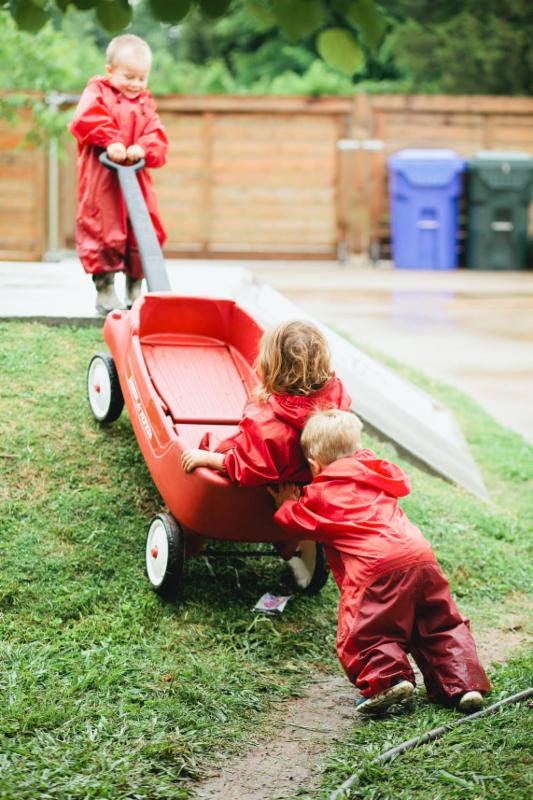
A Recipe for Rewarding and Stress- Free Parent Nights
By Frances Whalen
When I first started my LifeWays home program, I was terrified of Parent Nights! But I knew that parent education was an integral part of building the bridge between home and school, and I figured I better get to work on being less afraid of them. After a lengthy conversation with my dear mentor, Faith Collins, I believe we have come up with the perfect recipe for Parent Nights. I now look forward to these gatherings, and the butterflies have all gone away! The parents also look forward to them, and they are full of gratitude for the opportunity to be in community with one another.
|
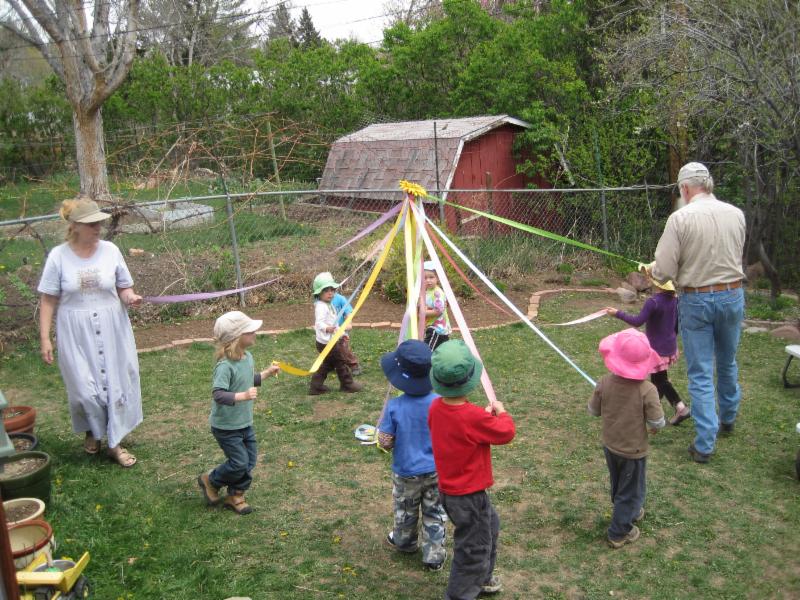

Building Community through Parent Gatherings
By Rahima Baldwin Dancy
Parents are looking for opportunities to connect with one another, so at Rainbow Bridge LifeWays Program we strengthened community through an alternating series of parent evenings and simple festival gatherings at noon. The noon gatherings preceded pickup for half-day children and were during lunch break for working parents--so we always had a pot of soup for parents, as well as our seasonal "treat" that the children had baked. Depending on the family, some children who stayed full-day went home early, as it can be difficult to have a parent come and then leave again. We also found we could close early with a festival before a major vacation if we gave parents enough warning. The parent evenings covered a topic as well as what we were doing in Rainbow Bridge and left plenty of time for questions and discussion.
By spring, our parents had formed their own "mom's night out group" that met periodically at a restaurant.
Here is a sample schedule that seemed to work well:
|
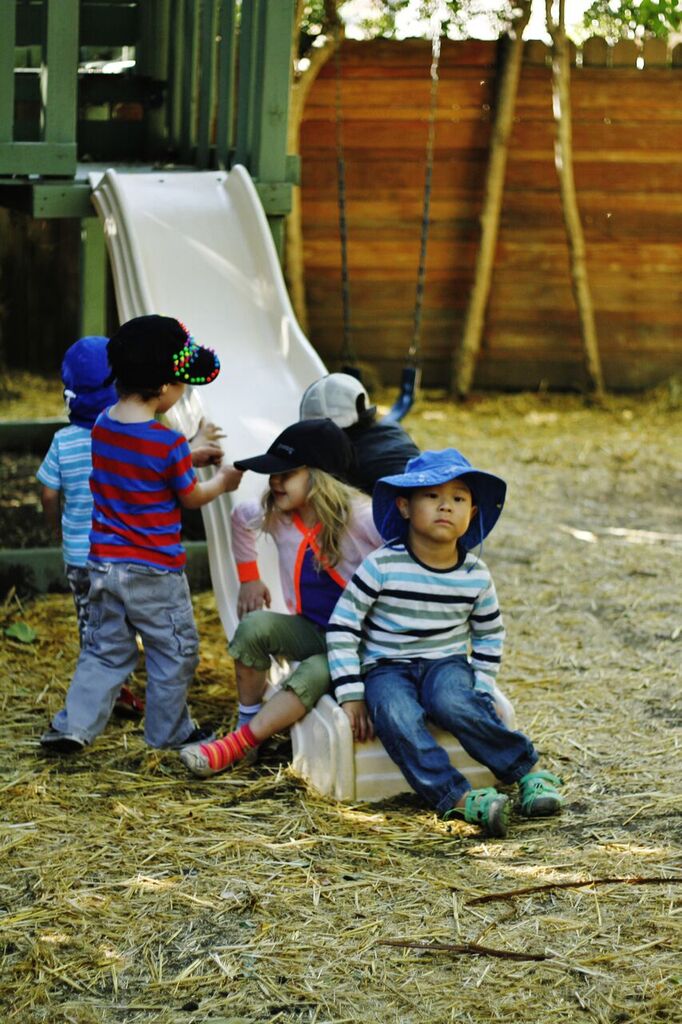

Growing Community through
Work Days
By Erica Orosco Cruz
When our school, Homeschool Garden started 15 years ago, we tried to do all the work ourselves. Staff gathered materials and worked hard to make the space beautiful. We now know
"many hands make light work" a
nd that there is community to support our beautiful environment.
Our school parent community members are required to fulfill 24 hours of service for a two-parent family and 12 hours for a single-parent family. One of the ways that families can complete their hours is through our workdays. We have our workdays seasonally throughout the year. The families, including children, meet at school (usually on a Friday afternoon) at 3 pm. We have a large paper sheet up with a list of items to be accomplished. The parents each then choose which item they want to work on first and write their name by the work item. Some work items may include digging a sand pit, fixing the chicken coop, washing silks, oiling the squeaky doors, cleaning out the rain gutters....I'm sure you can imagine what the lists might include. It's often the parents' first time mixing and mingling side by side as they shovel, sweat, laugh, and build.
|
|
Resources and Practical Tips
|
|
|
Community-Building Tips
Community Meals:
Offer community meals featuring different cuisines from around the world. Celebrate different cultures and their traditions. Often the biggest gap between cultures is lack of awareness and misunderstanding. Help expose our children and each other to the many beautiful and different people of the world by celebrating our differences rather than excluding them.
"One Minute Each Night"
During World War II, there was an adviser to Churchill who organized a group of people who dropped what they were doing every night at a prescribed hour for one minute to collectively pray for the safety of England, its people and peace. This had an amazing effect, as bombing stopped.
There is now a group of people organizing the same thing here in America. If you would like to participate: each evening at 9 pm ET / 8 pm CT / 7 pm MT / 6 pm PT / 3 pm HT, stop whatever you are doing and spend one minute praying for America, it's people and peace.
If you know anyone who would like to participate, please pass this along. People now understand the full extent of the power we have available through prayer because our prayers are the most powerful asset we have.
Timebanking as a Community:
Frances Whalen writes: I thought I'd share the concept of Timebanking, as it seems pretty applicable. I am currently in the process of starting a Timebank in Norman, Oklahoma with a friend, where people of all walks of life can come together to share neighborly favors with one another. In time banking, an hour of one member's time is always worth an hour of another member's time, no matter if it's a doctor or a mechanic or a babysitter. Time is time, and all human beings are assets. I see time banking as a way to both save money and create little networks of informal community relationships that serve one another. It used to be that extended family served as this extended network; as families have gotten smaller and more geographically dispersed (you know how that goes) this has fallen by the wayside. As we have grown more afraid as a culture, we are less likely to know our neighbors and even less likely to ask them for favors. Timebanking is a way to change that!
The official website for Timebanking, as coined by Edgar Cahn:
Nurturing Relationships among Childcare Providers:
|
New Trainings from LifeWays

|
|

Take the LifeWays Training and inspire your life with young children!
Completing the LifeWays® Early Childhood Certification Training can open new opportunities for you--both professionally and personally.
- Our one-year, part-time curriculum includes over 210 onsite hours
- Independent study and personal mentoring between sessions.
- It can prepare you to open or transform your own in-home program, classroom or early childhood center.
- Many parents also enroll for inspiration in the Living Arts.
Check the
website for upcoming training dates and locations.
|
New Online Courses

|
|
Online Courses from LifeWays
- January 2017: NEW! The Living Arts: Cornerstones of Care for the Young Child
- March 2017: Life as the Curriculum--Home as the Model. Over 275 people have taken this course, from many different countries!
- April 2017: The Living Arts
- Ongoing: Healthy Home Rhythms
In development: two new courses that will always be available online
- Creating Home Away from Home, on starting a home childcare program using daily life as the curriculum
____________________________________________
|
|
Enroll now for LifeWays NEW online course
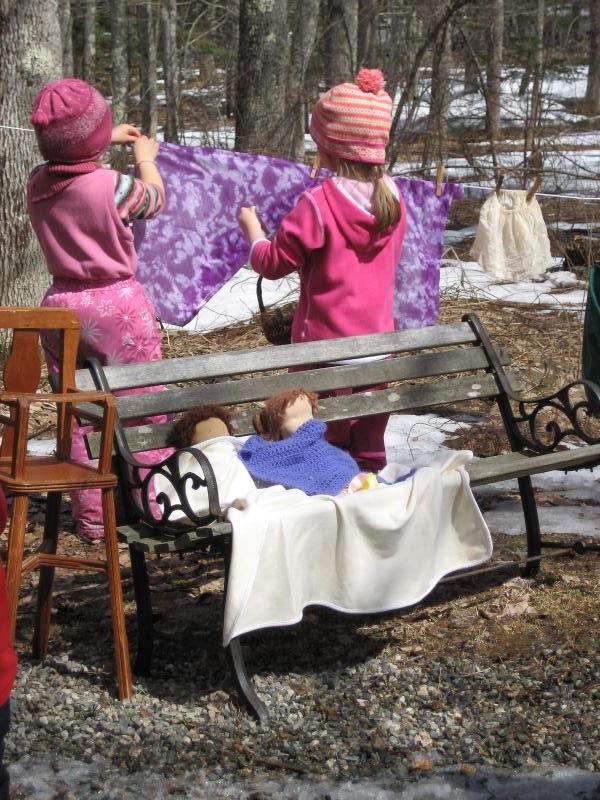
The Living Arts:
Cornerstones of Care for the
Young Child (birth - six) and for Yourself
With Cynthia Aldinger and Mary O'Connell
January 11 - February 11, 2017
Transform your life with young children through LifeWays' practical approach to enriching your home life and creating "home away from home" for children in early childhood settings.
Join Cynthia and Mary
for a four-week course exploring ways to use the Living Arts as the cornerstones for a solid foundation of learning for the young child and enrichment for your own life. Each week we will explore one of the Living Arts in detail and you will learn how to bring these activities into your life with young children, whether at home or in programs:
- Practical Activity, such as cooking, gardening, cleaning, shopping and even folding laundry!
- Nurturing Care, including bodily care, mealtimes, sleep, time in nature and creating a rhythm for your life
- Creative Exploration, such as singing, crafting, painting, storytelling and nurturing your own artistic self
- Social Ability, the art of helping children and adults learn to relate well with others
Every Wednesday for four weeks
a new lesson will be posted with a variety of learning activities:
- New reading materials
- Videos of conversations between Cynthia and Mary
- Practical tutorials
- Videos of real-life care settings using the Living Arts
- Your own Living Arts Workbook in which to record your ideas, inspirations and goals, and experiences
- Rich online discussion forums with the presenters and other students. Learn how LifeWays students throughout the world are using these ideas to enrich their home life or revolutionize childcare.
Life-Long Access:
Lively online discussion forums on themes relating to the content are held each week, so participants get to learn from one another's experience as well. The instructors reply over the course of each week, so there is no need to show up at a specific time and no difficulty with different time zones. Life-long access to the course means you can learn on your own time and at your own pace.
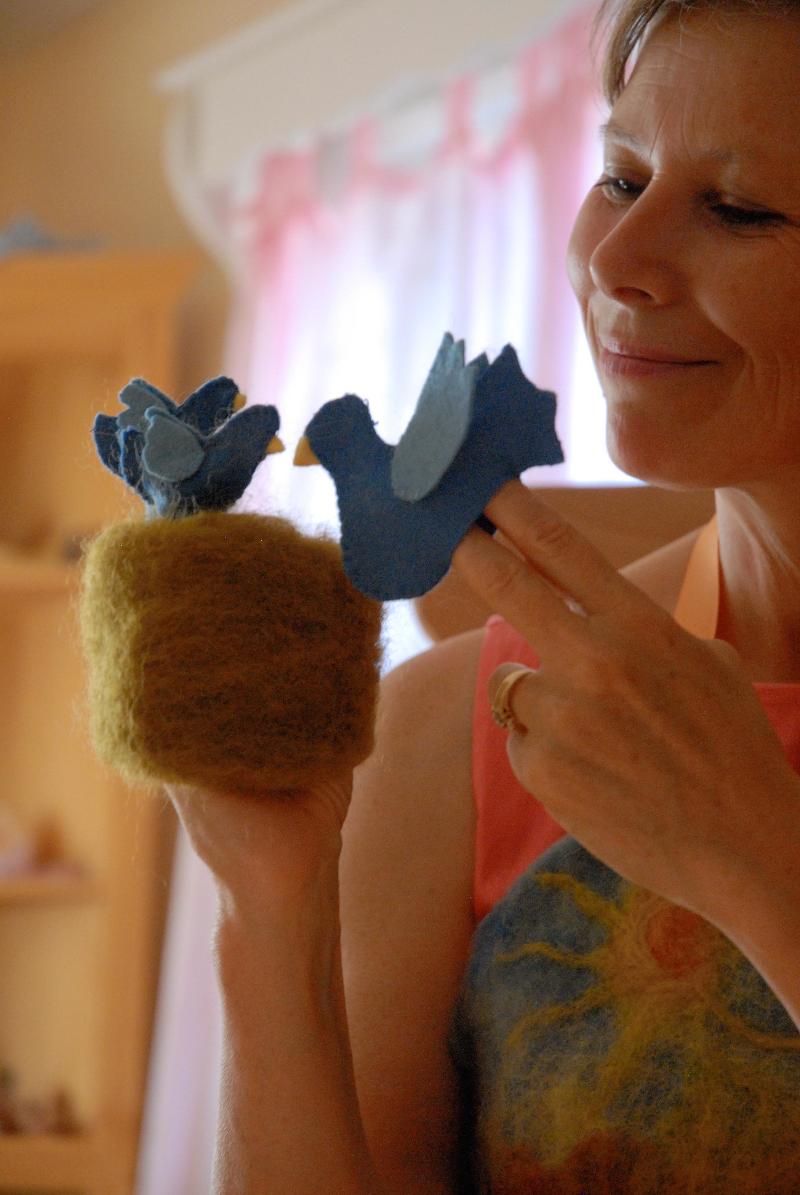
CEUs Available:
Childcare providers and early childhood teachers needing continuing education will earn a certificate for 15 contact hours through their active participation in and completion of the course by February 11, 2017.
About the Master Teachers:
Cynthia Aldinger
founded the first LifeWays program in 1998 to nurture families and inspire childcare practices throughout the country. She is the author or Life is the Curriculum and coauthored Home-Away from Home: LifeWays Care of Children and Families with Mary.
Mary O'Connell
was a home-based LifeWays childcare provider and LifeWays center director for 20 years and is now LifeWays Training Coordinator and the creative genius behind the LifeWays online courses, which have been taken by more than 350 people from all over the world.
TUITION: $150 includes life-long access to the course plus a workbook for your personal exploration of The Living Arts.
|
Featured LifeWays Representative Program: The Little Farm School

|
The Little Farm School,
a LifeWays Representative Site, is a home program in southern Maine serving 12 children ages 1-5.
Director, Mary Vermette-Graham, writes:
I received my LifeWays certificate in 2010 and have been caring for children using the LifeWays model since then.T
he program is housed at a family homestead where we involve the children in the daily life on the farm. Caring for the chickens, ducks, goats, pigs and cows as well as tending to the garden are part of our rhythm. We are very fortunate to be part of a wider community in our small town and have many members who take part in the joy of our days, including elders who come to rock and sing to children and teenage volunteers who come by after school to play. Gratefully we have been able to bring a fellow LifeWays graduate on board as Assistant Teacher!
The Little Farm School at Dragonfly Meadow Farm
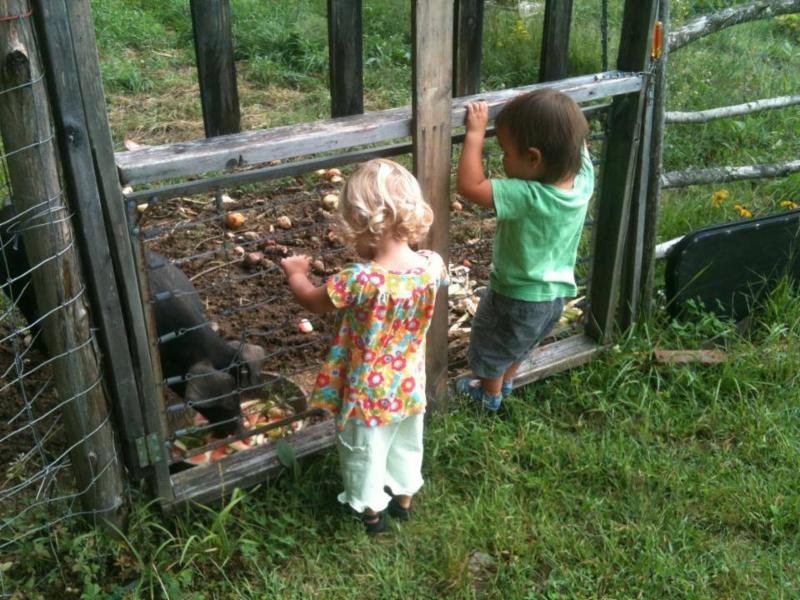 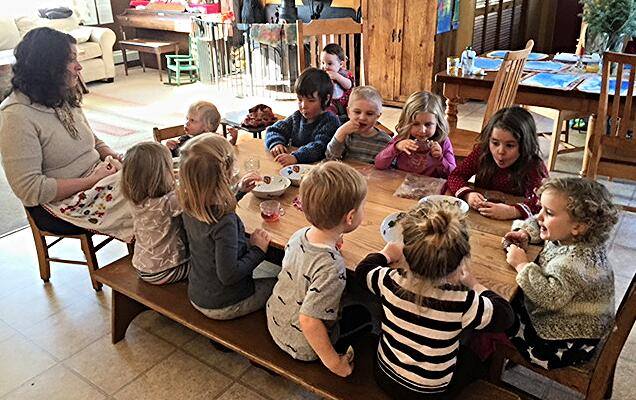 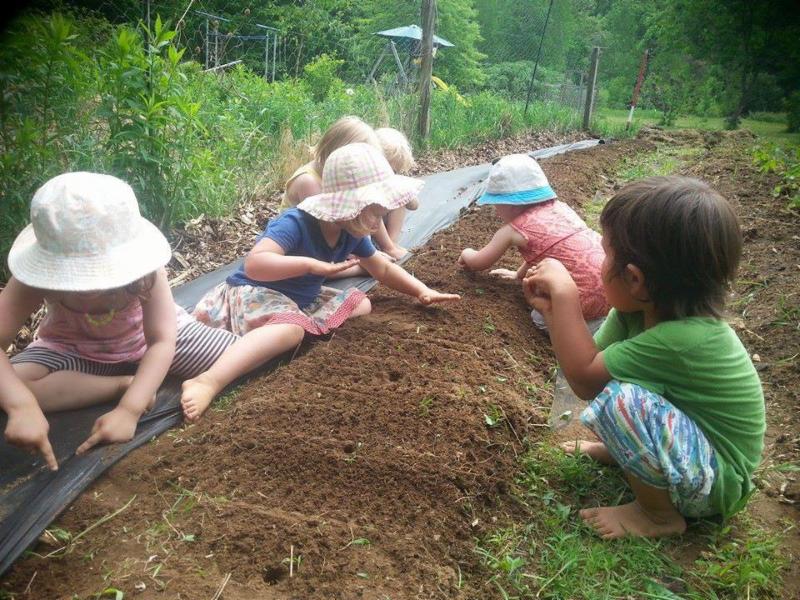 |
News from the LifeWays "Family"
|
|

LifeWays Board Visits with Cynthia's Family

The LifeWays board held its annual meeting in August in Sacramento this year, where we were among the first outside the family to see Cynthia's husband, Michael, walk on his own as another major step in recovering from Guillaine-Barre. Their son, Tim and his wife, Becky, hosted us for a delicious barbecue, and it was so much fun to meet Eloise, who turned three in September, and Ian Michael.
Board president, Mary O'Connell, also led a terrific meeting in which we reviewed the history of LifeWays and explored making decisions arising from our values. We also made a "pilgrimage" to Rudolf Steiner College,
Rahima, Kerry, Marianne, Michael, Cynthia, Mary, Ashley,
as several board members had never been
R
hoda with Ian, and Lisa; Eloise in front.
there.
Employment Opportunities
KinderForest Teacher, LifeWays Milwaukee

LifeWays Early Childhood Center is seeking a KinderForest Teacher
LifeWays Early Childhood Center is a non-profit organization that provides child care, pre-school and parent-child enrichment activities for families with children ages infant to six years. LifeWays focuses on mixed-age, relationship-based care, providing young children with the best elements of care found within a healthy family.
Located on the Koenen Land Preserve in the vibrant Riverwest community,
is currently seeking a part-time KinderForest teacher for fall 2016. Our unique outdoor preschool program provides young children with the opportunity to be immersed in nature and imaginative play. KinderForest meets on Thursday and Friday mornings from 9 am until 11:30 am from Labor Day until Memorial Day.
Assistant/Substitute Teacher, KULANU Sebastopol:
We are looking for a LifeWays assistant substitute at KULANU (All of Us), a Lifeways Representative site In West Sebastopol, CA. We are a year-round, nature-based adventure in growing a mindfulness community of families with young children. Framed by the Jewish festival calendar, and spending most of our time outdoors, KULANU welcomes infants through 4 year-olds into a Waldorf environment infused with Zen mindfulness practice. Our days are filled with spaciousness, singing, gardening, blessing, open imaginative play and endless joy. Each morning we go for a nature walk which includes a bit of yoga followed by a stretch of silent walking meditation. Families gather throughout the year to work in the garden, go camping, and celebrate Shabbat and Jewish festivals together. The children come Tuesdays-Fridays, 8am-4pm, with a 2-hour rest time from 1-3pm. If supporting families and meeting young children soul to soul is your idea of grounded spiritual practice, and you love being immersed in beauty and joy all day long, please get in touch with me, Yael Peskin, at [email protected] about being part of KULANU.
___________________________________
Flower Essences
Seeking someone familiar with using Flower Essences in early childhood:
I am a flower essence therapist in New Zealand and I am
looking to find examples of where and how flower essences have been
used in pre-school and early childhood education. I feel it would give
more strength to my practice, so would appreciate any help with where
I could look for documents/testimonials/evidence etc.
Kind regards,
Leanne Koorey,
[email protected]
|
|
|
|
 |
|